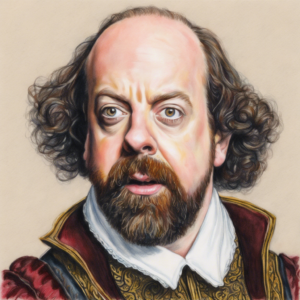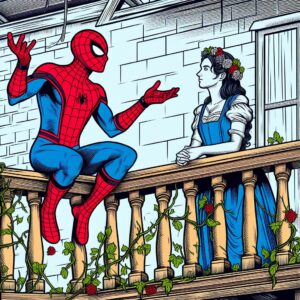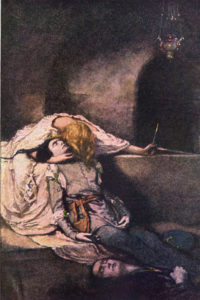
Paul Giamatti is all over my newsfeeds this morning, and not just for his Oscar-nominated turn in The Holdovers. It seems that Mr. Giamatti has joined the ranks of celebrities having their genealogy researched, and … we have a Shakespeare sighting, people! Specifically, Giamatti appears to be a direct descendant of Malcolm III.
“I learned that in my genealogy I am evidently directly descended from Malcolm the Third. King Malcolm III, known as ‘King Malcolm III – The Big Head’,” he said. “I think like ‘The Big Cheese’ is what they meant. Apparently I am a direct descendent.”
Giamatti does have a little Shakespeare in his resume of 118 IMDB credits. However, although he was both in The Ides of March (2011) and played King John in Ironclad (2011), neither is a Shakespeare adaptation. In 2013, he played Friar Laurence in Julian Fellowes’ adaptation of Romeo and Juliet.
Wait, Those People Were Real?
Coincidentally, I had just been researching this when a Reddit thread came up asking about the true role of eldest sons in ancient Scotland, whether Malcolm would have succeeded Duncan, and whether Duncan’s choice had to be approved. I think most people realize that Macbeth was a real king, but not necessarily that most of the characters—Duncan and Malcolm in particular—were also real.
Although this history is so ancient that it’s hard to know for sure (did Banquo and Fleance even exist?), the story goes very similar to how Macbeth wrote it—Macbeth killed Duncan, and Duncan’s son Malcolm killed Macbeth. The big factual difference between history and Shakespeare’s story is that the real Macbeth had a stepson, Lulach, who became king after Macbeth was killed. No matter, though—Malcolm killed him, too.




